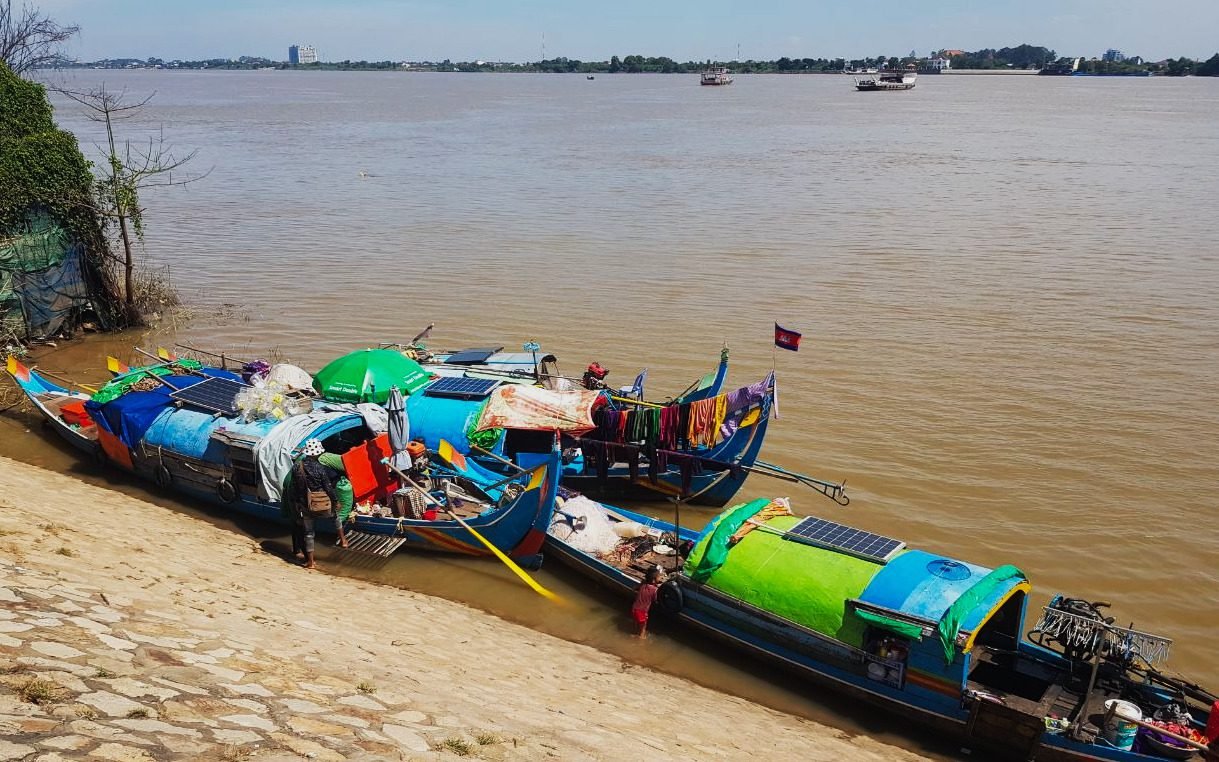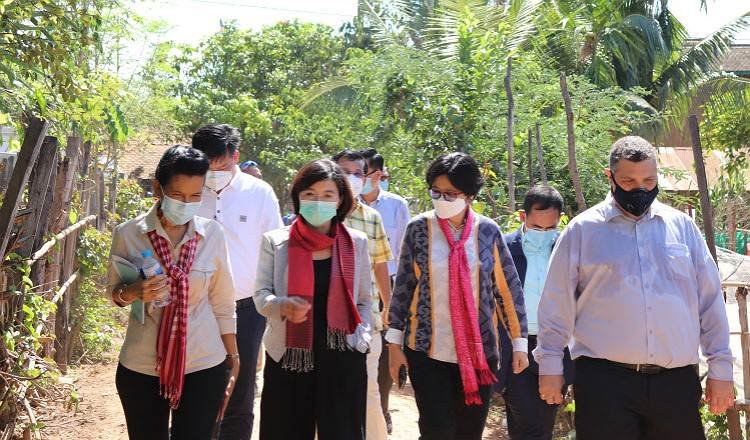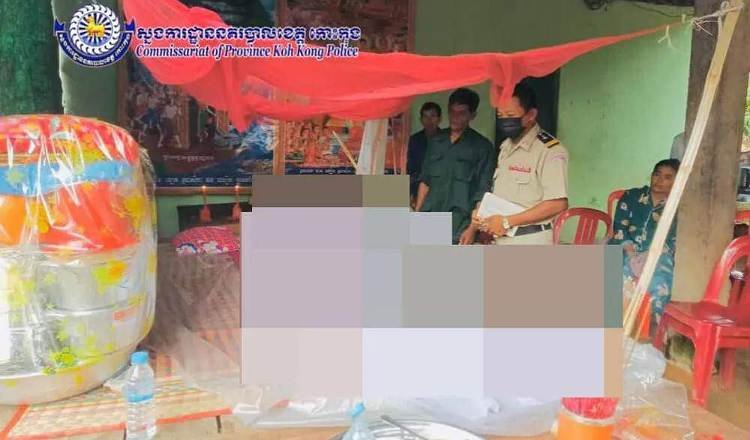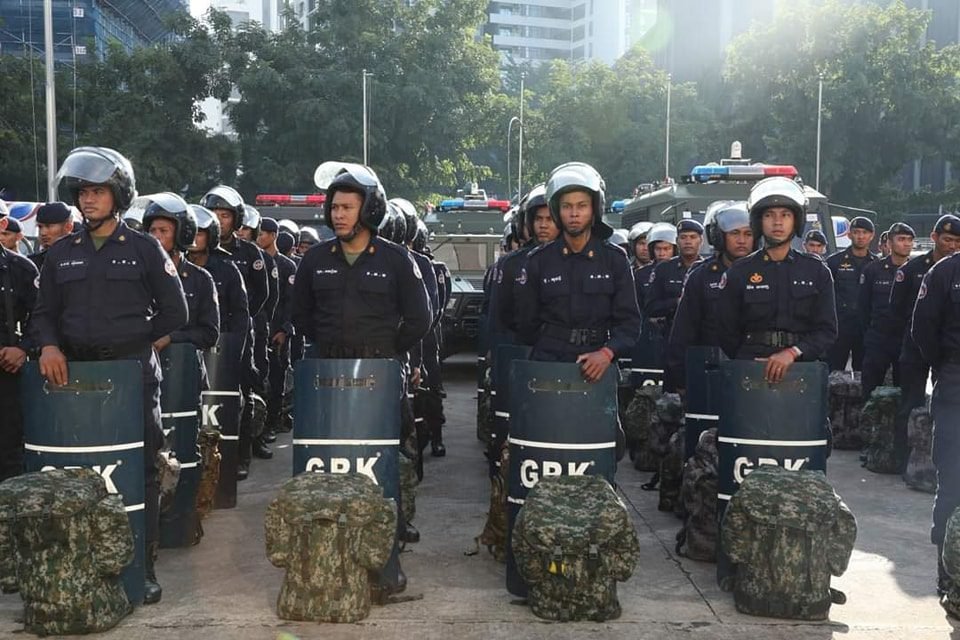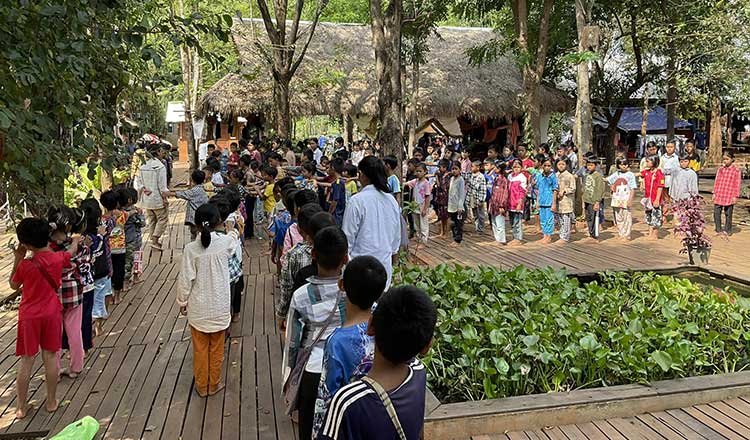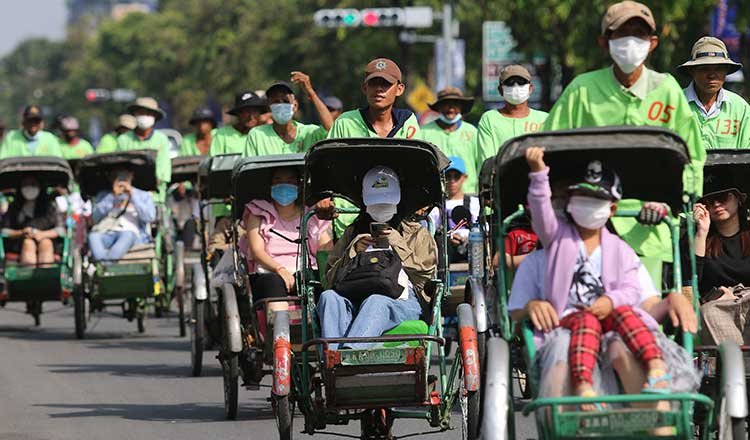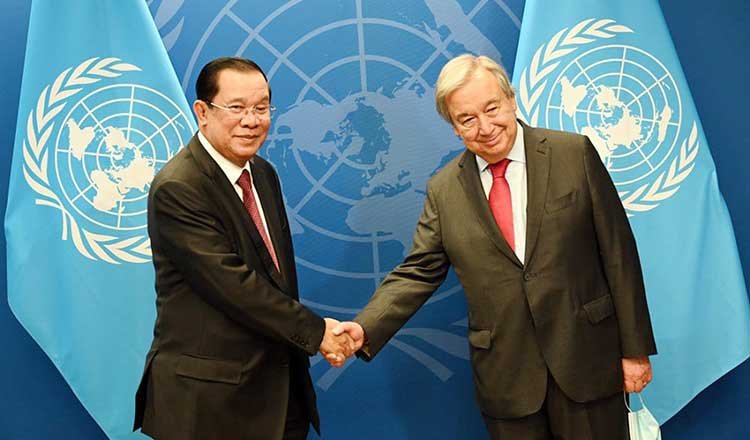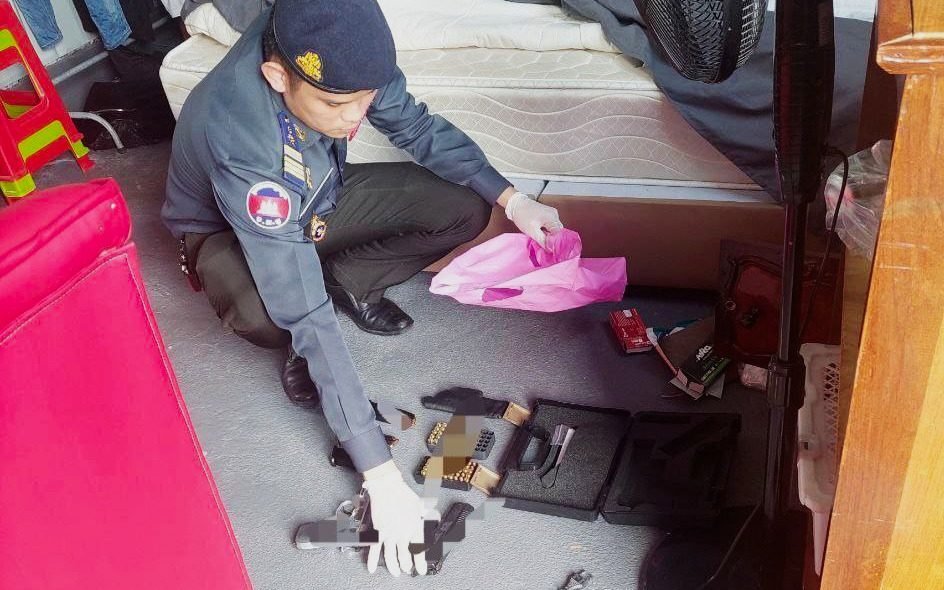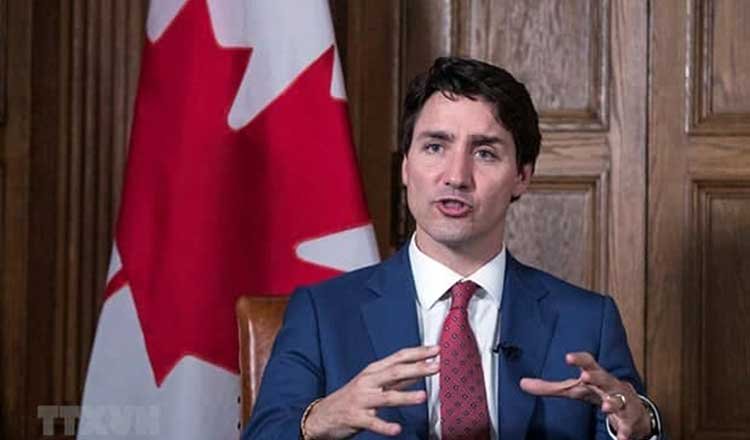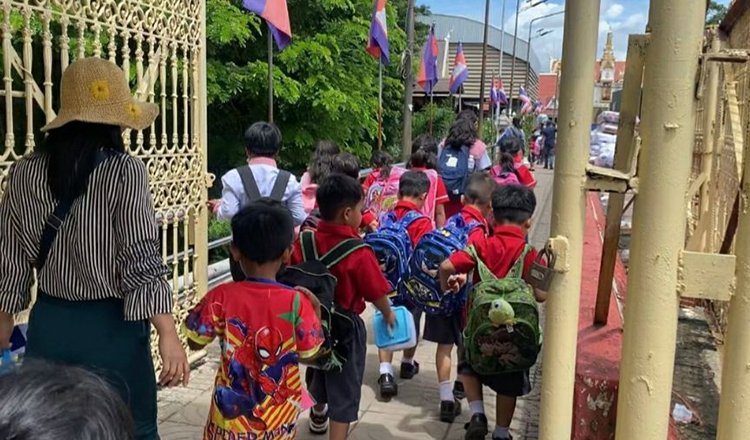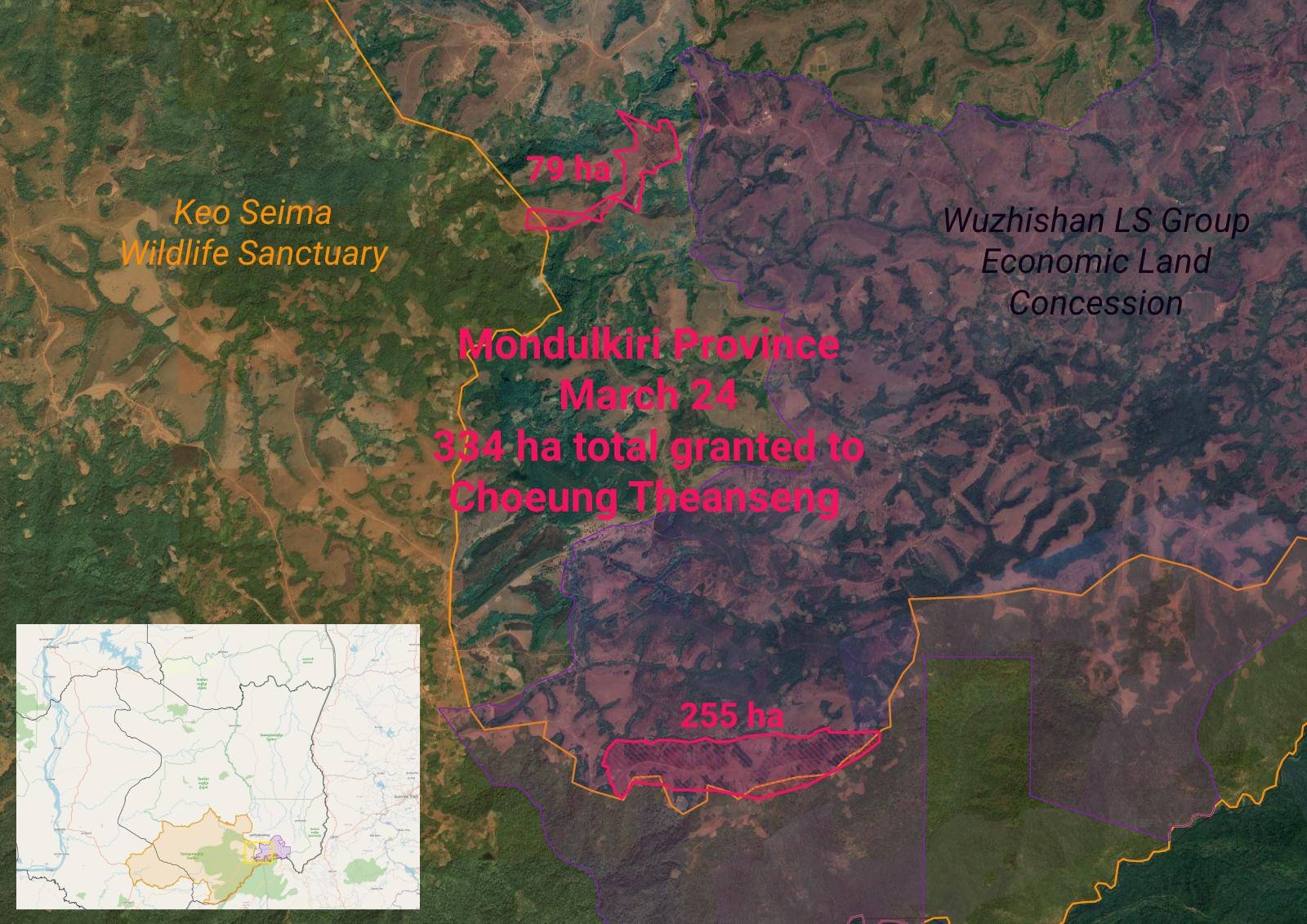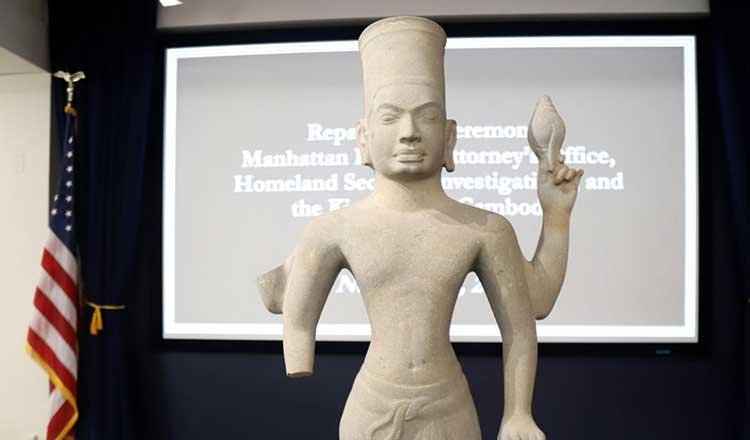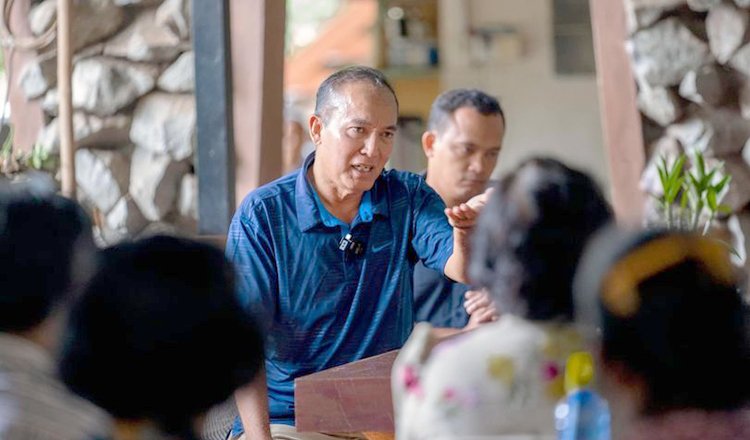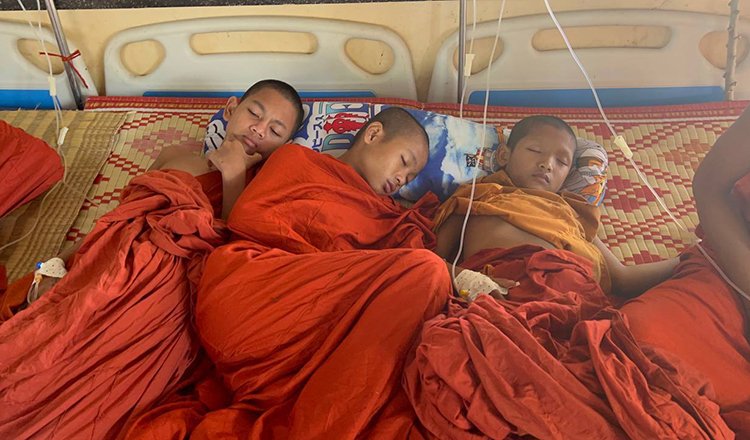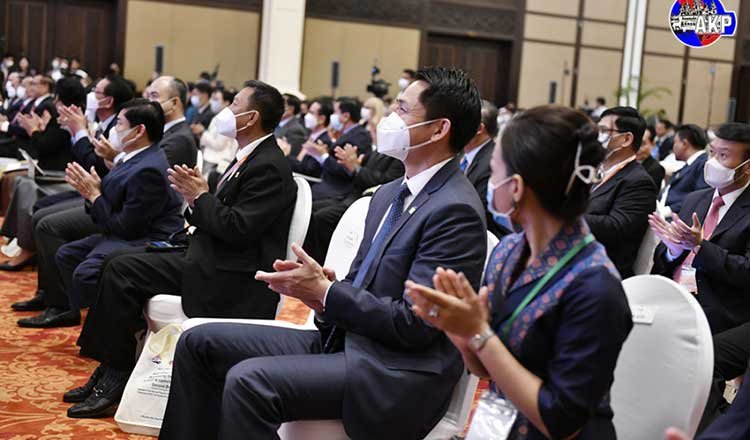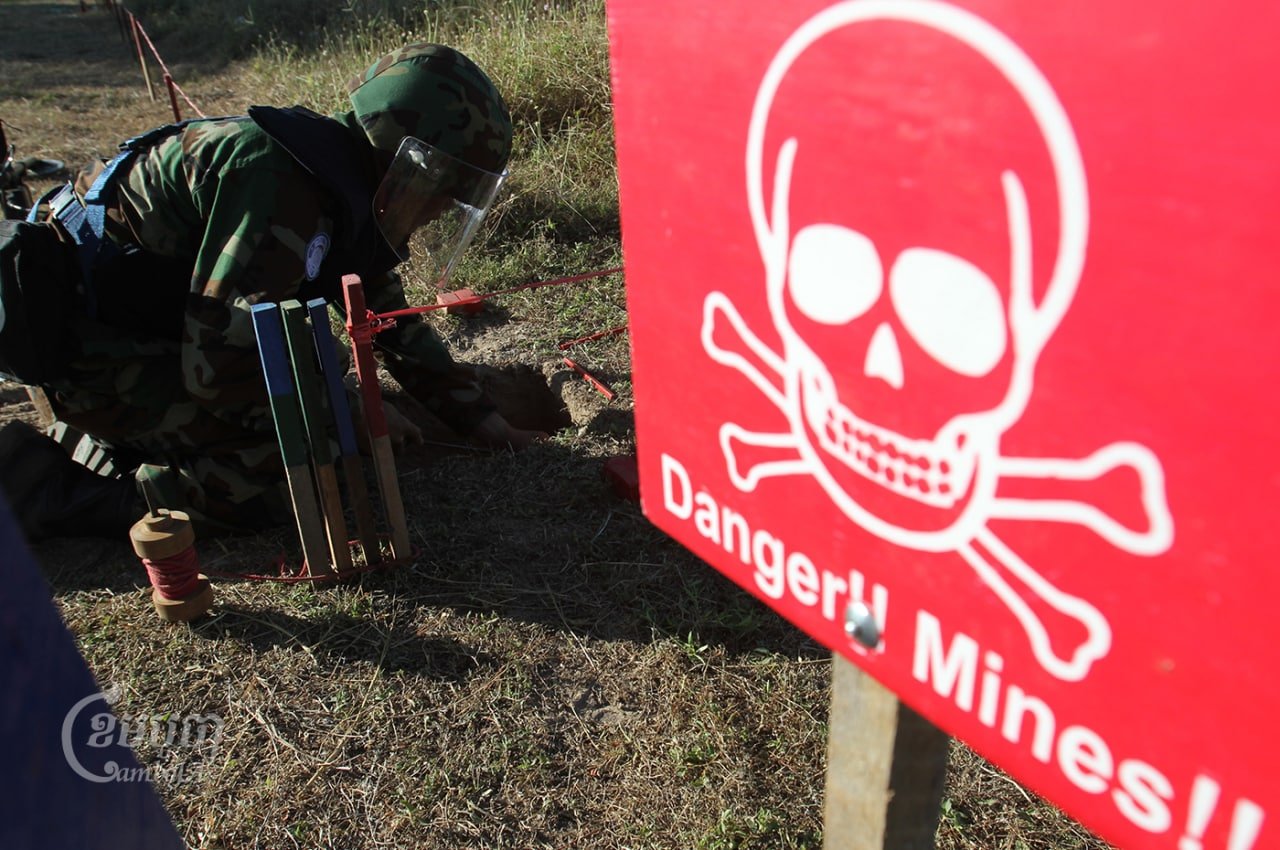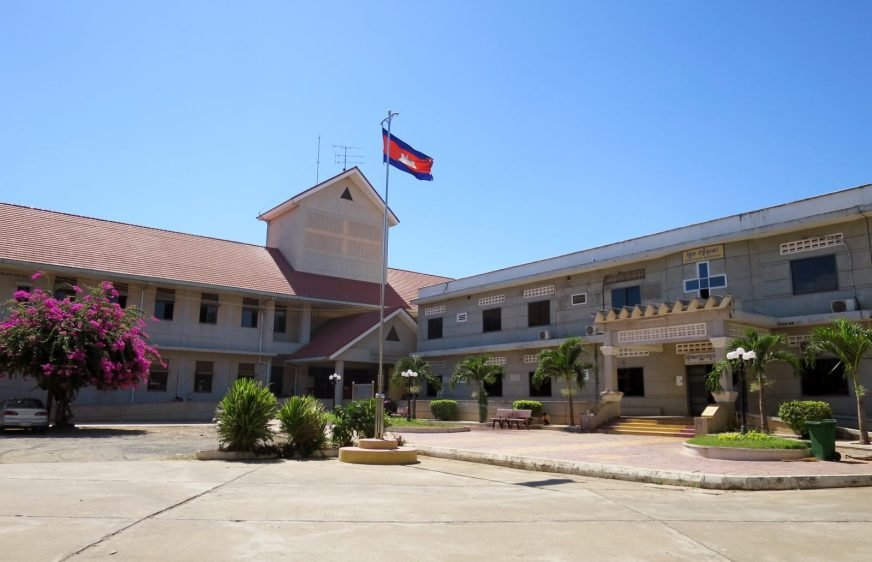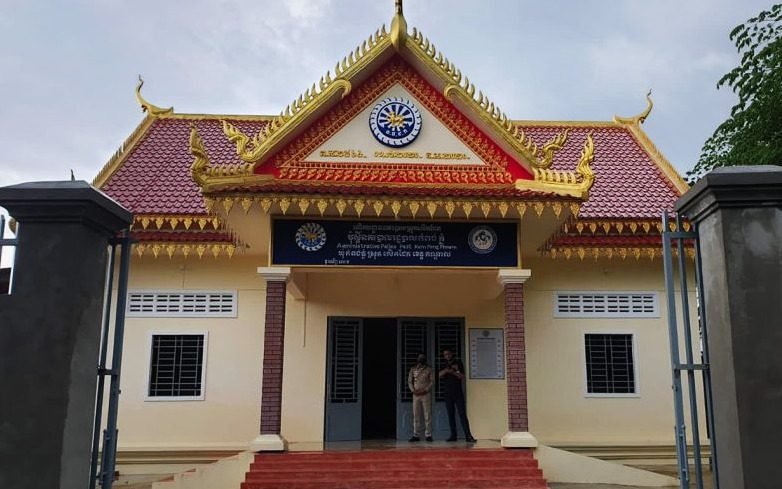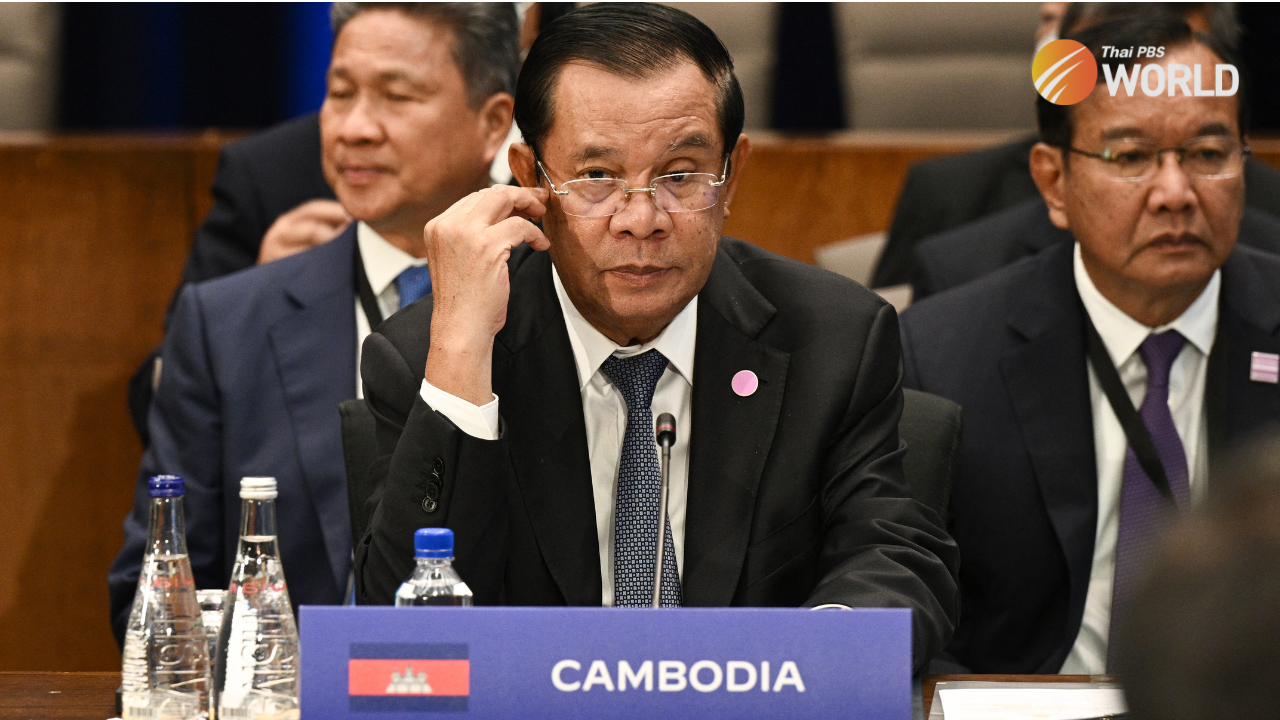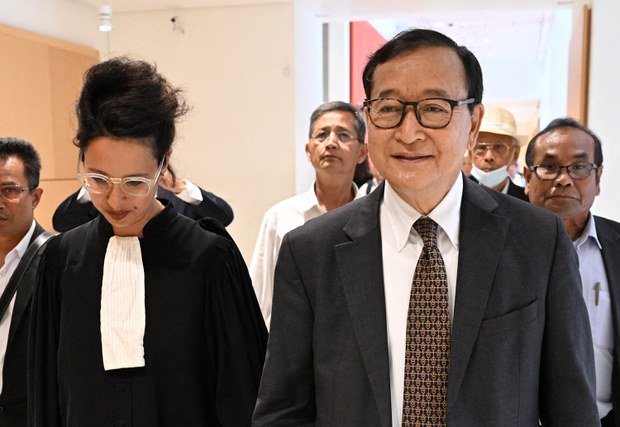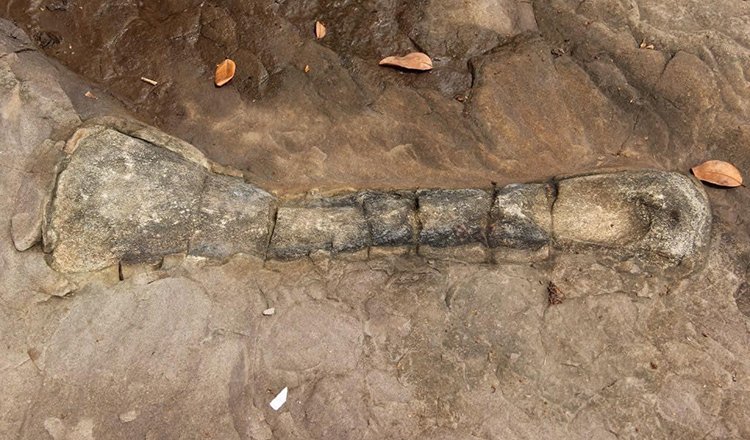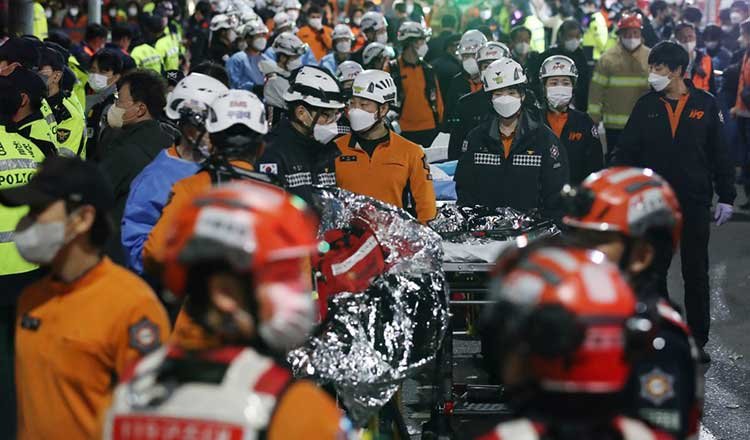-
Posts
15,793 -
Joined
-
Last visited
Content Type
Events
Forums
Downloads
Quizzes
Gallery
Blogs
Everything posted by geovalin
-
The Cambodian prime minister said the timepiece represents his country’s technological advancement. Around two dozen VIPs at the ASEAN summit in Phnom Penh this week will receive a limited-edition, luxury watch that a website for collectors said was “worthy of a Swiss or German high end manufacture label.” The swag has a purpose, according to Cambodian Prime Minister Hun Sen, who as host of the event will present the dignitaries the watch this week. It showcases his country’s “scientific and technical progress” and its intention to become a player in the luxury timepiece market, he said in a Facebook post. But the gifts have also highlighted Hun Sen’s own interest in fine goods, despite what on paper is a meager government salary, as well as his links to a prominent businessman who has emerged as one his closest advisers. “Truly a symbol of Cambodia's chairmanship. People don't realized (sic) how these things are perceived by others, do they?” tweeted Ou Virak, president of Future Forum, a Phnom Penh think tank that promotes democratic reforms in the country. He said in an email that recipients would likely look at the gift as a Cambodian effort to “buy favors.” A growing conglomerate The watch was produced by Prince Horology, which is part of the Prince Group, one of the fastest-growing companies in Cambodia that has a seemingly limitless amount of cash to spend. The business began in 2014 as a real estate developer but has since grown to include banking, gambling, tourism and food and beverage interests. The Prince Group is run by Chen Zhi, who was born in China but naturalized as a Cambodian citizen in 2014. Chen is often seen by Hun Sen’s side during important events, including as part of a delegation that traveled with the prime minister to Havana in September to meet with Cuban government officials. RFA reported last month that Chen was part of a shadowy investment group that purchased a $1.4 billion stake in a Cuban cigar company. The prime minister, who is also serving as the 2022 chair of the Association of Southeast Asian Nations, commissioned Prince Horology to produce 25 tourbillon watches for attendees of the ASEAN conference, including the leaders of nine of the 10 countries that make up the regional bloc. Watch aficionado The word tourbillons, which was derived from the French word for “whirlwind,” refers to mechanisms invented by 19th century watchmakers to counter the effect of gravity on pocket watches’ accuracy. Advancements since have rendered the instruments unnecessary, but their intricate workings remain sought after among aficionados — to include Hun Sen, whose own weakness for watches is well-known. Since 2018, the prime minister has been the subject of seven posts by Insane Luxury, a Facebook page dedicated to the expensive watches worn by public figures. Each post chronicles a single watch spotted on the strongman’s wrist, collectively representing $13 million of retail-price value. Four of the watches were of the tourbillon variety. Hun Sen’s detractors have pointed to the discrepancy between his $2,500-a-month salary and the high-end horologes on his wrist, a criticism that was repeated on the news last week that 25 timepieces would be offered to commemorate the summit. (Myanmar’s ruler, Senior Gen. Min Aung Hlaing, was not invited due to the lack of progress in the war-torn country on a ASEAN-developed peace effort.) Cambodian Prime Minister Hun Sen chairing a government meeting, Nov. 2, 2022. CREDIT: Facebook: Hun Sen Concerns over corruption Um Sam An, a former member of Parliament representing the Cambodia National Rescue Party, an opposition party dissolved by the Cambodian Supreme Court in 2017, said the money to produce the watches would have been better spent helping victims of recent flooding in the country. Given Cambodia’s reputation for corruption, Um Sam An said few world leaders would likely wear the watch. Cambodia ranked close to the bottom, at 162 out of 198 countries, in Transparency International’s 2019 Corruption Perceptions Index. Political analyst Em Sovannara told RFA’s Khmer Service in an earlier interview that the leader should have opted for something that highlights Cambodia's cultural identity, such as the Apsara sculptures or other cultural emblems. Sok Ey San, spokesperson for the ruling Cambodian People’s Party, dismissed criticism of the gift, noting that presents are a tradition at ASEAN summits. In 2019, for example, host nation Thailand presented visiting leaders and their spouses seven-inch silver garlands in bronze enamel boxes. “We can give anything as a souvenir. We can switch types of souvenirs,” Sok Ey San said. A growth opportunity Hun Sen’s Facebook post announcing the gift received tens of thousands likes and was shared nearly 7,000 times on Facebook. Most commentators complimented what they saw as the excellent craftsmanship by Cambodian watchmakers, as well as Hun Sen’s leadership. The watches also represent a new opportunity for economic growth in the country, according to Hun Sen. An estimated 2.8 million people live below the poverty line in Cambodia, where per capita GDP is about $1,500, well below what the ASEAN summit watch would likely fetch on the market. Prince Horology has developed a manufacturing workshop and a training center for would-be Cambodian watchmakers. Its first class graduated last week. The limited-edition ASEAN watches were all assembled by Cambodian technicians, Hun Sen said. “We have branded the watches as ASEAN, but they are made in Cambodia so that they will know that Khmer can produce watches,” he said at a commencement ceremony last month, as reported by the Phnom Penh Post. Hun Sen said Monday on Facebook that he planned to wear the watch at the ASEAN summit, at the G20 Summit in Indonesia on Nov. 15-16, and then during the Asia-Pacific Economic Cooperation meeting in Thailand on Nov. 17-18. The handicraft has been reviewed favorably by watch-collector website Deployant, which in a review said the watches are “worthy of a Swiss or German high end manufacture label.” “The dial side is very simple, with a champagne gold dial with Dauphine hands, and dagger applique markers,” the website noted. “The watch features a sunken subsidiary seconds hand with the engraving of what looks like the Cambodian national flower Romduol.” The inner workings of the watch, and its whirling tourbillon mechanism, are visible through a clear backing, emblazoned with the words “Made in Cambodia” and “Prince Horology.” https://www.rfa.org/english/news/cambodia/hun-sen-asean-watches-11082022032911.html Copyright © 1998-2020, RFA. Used with the permission of Radio Free Asia, 2025 M St. NW, Suite 300, Washington DC 20036.
-

Asean Summit: Fishing Community Near Sokha Hotel Pushed Out
geovalin posted a topic in Cambodia News
Off the banks of Phnom Penh’s Chroy Changva peninsula, in the shadow of the famous Sokha Hotel, the ubiquitous fishing boats and sand dredgers have been replaced by military vessels, and local fisherpeople have been asked to temporarily clear the area with no compensation until the Asean Summit is over. “They stay in the Sokha Hotel, and they look out the window and see boats. It’s messy, chaotic — it doesn’t look good,” said Sa Viyas, a 35-year-old woman who was asked by authorities to leave the tip of the peninsula over the weekend. She lives on a boat with her family and another family, with 10 children between them. Like many of these boat-dwelling people, they are Cham people, a predominantly Muslim minority group with their own language and history distinct from Khmer, and who have often been targeted for relocations. Many of them were born on boats, and have traditionally handed down their semi-nomadic lifestyle for generations. Rous Pokharry, another fisherman, said that his old home by a new market nearby was taken from him over a year ago, but he was told he could live on his boat near Sokha Hotel. Yesterday, he was told he had to leave for at least a week. He said he was told he could move his boat to a spot only about a kilometre away, but said that location was too treacherous and his boat could sink. read more https://vodenglish.news/asean-summit-fishing-community-near-sokha-hotel-pushed-out/ -
In an interview with Khmer Times recently, World Health Organisation (WHO) Representative of Cambodia Dr. Li Ailan said that the Kingdom has made good achievement in TB prevention and control over the past years. “Cambodia is no longer in the WHO list of top 30 countries with high TB burden (2021-2025),” she said. The disease remains endemic in the country, but young children are at risk of TB as their immune system is still developing. “Children living in a household with others affected by infectious TB are especially susceptible, and newborn children of mothers with TB are at high risk,” she said. Dr. Ailan pointed out that finding TB cases continue to be challenging. It is difficult to diagnose TB in young children as they may not display typical TB symptoms, or it may not be possible to take samples for testing. “This makes it very hard to determine the exact number of childhood TB cases in Cambodia. But we do know that, in 2021, over 5,000 childhood cases of TB were notified and treated across the country, using a new drug formulation specific to children,” she said. read more https://www.khmertimeskh.com/501181016/cambodia-no-longer-in-whos-top-30-nations-with-high-tb-rate/
-
In a tragic incident, a 42-year-old village security man was gored to death by his buffalo in Koh Konh province. The accident took place near the victim’s paddy field at O-Chrouv village, in Sre Ambil district’s Boeng Preav commune at about 6pm on November 4 evening. Sre Ambil district police officer Captain Yung Dareth said that the victim identified as Kuy Them. Describing the unfortunate incident, the police officer said that the buffalo attacked Them because he tried to take the animal back home. The victim took a small stick to beat the animal in order to make it come out of the pond it was bathing. read more https://www.khmertimeskh.com/501181002/42-year-old-gored-to-death-by-buffalo-in-koh-kong-province/
-
The jailed activist’s lawyer calls on Biden to press for her release during his visit next week. A group of youth activists in Cambodia launched a week-long hunger strike Monday to demand the release of outspoken Cambodian-American lawyer Theary Seng and other political prisoners ahead of the annual ASEAN Summit and U.S.-ASEAN Summit in Phnom Penh later this week. Theary Seng was sentenced to six years in prison in June on treason charges, prompting condemnation from rights groups and the U.S. government. The lawyer, who holds dual Cambodian and U.S. citizenship, was sentenced on June 14 along with 50 other activists for their association with the banned Cambodia National Rescue Party, once the main opposition in the country before it was dissolved by the Supreme Court in 2017. On Monday, six Khmer Thavrak youth activists – including former prisoners of conscience Hun Vannak and Chhoeun Daravy – began their protest at Tikheak Kiri Salavoan Temple in Preah Vihear province’s remote Tbeng Meanchey district. The group plans to continue their hunger strike in front of Preah Vihear Prison, where Theary Seng is being held, on Wednesday, before concluding the weeklong protest at Freedom Park on the outskirts of Phnom Penh. Speaking to RFA Khmer, members of the group said they hope to draw attention to what they call the unjust jailings of Theary Seng and other political prisoners ahead of the Nov. 10 summit in Cambodia, which holds the regional bloc’s rotating chair this year. “We will try not to eat or drink and only meditate,” Hun Vannak said, adding that the group will also pray for Theary Seng’s well-being in prison. “This is to show the injustice of the government jailing innocent people, particularly Theary Seng. If the government doesn’t set her free, we will press on with other activities,” he said. The protest is also a show of solidarity with Theary Seng who began her own weeklong hunger strike on Monday after the government refused to grant her an unconditional release. Theary Seng had vowed to do so in a letter written from inside of Preah Vihear Prison and obtained by RFA on Oct. 14, adding that, even if freed from prison, she would continue her activism in Cambodia until the country undergoes a peaceful and democratic leadership change. Attempts by RFA to reach Nuth Savana, the Interior Ministry’s spokesperson for the Department of Prisons, went unanswered Monday, but he has previously said that the country’s courts would not be pressured to overturn her sentence. Chhem Sreykea, another member of the Khmer Thavrak youth, told RFA that her group wants to send a message to the government that the arrest and jailing of innocent human rights and political activists is an abuse of power. “The jailing of Theary Seng is a grave injustice, as she has devoted her life to making Cambodia a better place,” she said. “I hope there will be a resolution of this case and that Theary Seng is set free following the ASEAN Summit.” Am Sam Ath, the deputy director of local rights group Licadho, said he stands with the Khmer Thavrak youth group and Theary Seng in their pursuit of justice, but expressed concern for their well-being if they decide to extend the hunger strikes beyond seven days. “Hunger strikes are a kind of advocacy which the Khmer Thavrak youth employ to seek social justice and the release of human rights, environmental and political activists jailed under dubious charges and whose fundamental freedoms have been violated,” he said. He urged the government to release Theary Seng and other political prisoners to avoid condemnation from the international community during the ASEAN Summit. This photo of Theary Seng, distributed on Facebook the day of her arrest in June 2022, shows her in a prison uniform and with traces of makeup from the costume she wore to protest her trial and conviction. Credit: Citizen journalist Lawyer’s statement Also on Monday, Jared Genser, the pro bono lawyer representing Theary Seng, issued a statement calling on U.S. President Joe Biden to “press [Cambodian Prime Minister] Hun Sen for Theary’s freedom — and freedom for all the political prisoners’ of Cambodia.” Biden plans to attend the Nov. 12-14 U.S.-ASEAN Summit in Phnom Penh, where he is expected to meet with Hun Sen. Monday’s statement confirmed that Theary Seng had begun her hunger strike, in part to demand that authorities transfer her back to Prey Sar Prison in Phnom Penh, following her clandestine relocation in June to Preah Vihear Prison – a six-hour drive from the capital, where her family, counsel, and supporters are based. During her time in Preah Vihear, prison authorities have repeatedly denied Theary Seng’s demand for the same rights afforded to other prisoners, including having weekly access to church services and the ability to make regular phone calls, the statement said. Theary Seng was imprisoned during the bloody Khmer Rouge regime after authorities killed her parents, but she escaped and fled to the U.S., where she obtained a law degree before returning to Cambodia in 2004 to found two NGOs promoting human rights and civic engagement. U.S. officials including State Department Spokesperson Ned Price, Under Secretary of State Uzra Zeya, USAID Administrator Samatha Power, and Ambassador W. Patrick Murphy have all called for her immediate and unconditional release. Secretary of State Antony Blinken pressed Hun Sen to free her and other activists held on politically motivated charges during a visit to Phnom Penh in August. Capital security tightened Meanwhile, Cambodia’s government said it is tightening up security in Phnom Penh, deploying more than 10,000 security forces to the capital to quell any unrest ahead of the ASEAN Summit. On Monday, more than 100 laid off workers from the NagaWorld casino in the capital who have been striking for the past eight months defied warnings from authorities to continue their protest seeking government intervention to reinstate them to their jobs. Mam Sowathin, a NagaWorld striker, told RFA that protests that include the beating drums and sounding of whistles in front of their former place of work would continue during the ASEAN Summit if the government and NagaWorld management offer no resolution in their labor dispute. “If the government does not want to see our protest [during the summit], it should find a workable solution for us,” she said. “The [government] has only blamed our side, but they haven’t condemned NagaWorld’s owner [for unjustly laying us off].” Monday’s protest dispersed peacefully, despite previous scuffles with police. In August, authorities violently clashed with around 100 of the mostly female workers as they sought to protest at the casino, injuring several of them. The group’s petitions to the government for assistance have largely gone unanswered. RFA was unable to reach Meth Meas Pheakdey, the spokesperson for Phnom Penh City Hall, for comment on the continued protests. Translated by Sovannarith Keo. Written in English by Joshua Lipes. https://www.rfa.org/english/news/cambodia/hunger-11072022174526.html Copyright © 1998-2020, RFA. Used with the permission of Radio Free Asia, 2025 M St. NW, Suite 300, Washington DC 20036.
-
Cambodian authorities have displayed armored vehicles, riot shields and assault rifles and taken to the waters off Phnom Penh for security drills, saying 10,000 personnel are ready to be deployed for this week’s Asean Summit. The summit from Thursday to Sunday is set to be attended by Asean’s 10 member states as well as China, India, Japan, South Korea, the U.S. and others, with key leaders such as Chinese Premier Li Keqiang and U.S. President Joe Biden having announced their participation. For Cambodian authorities, that has meant a show of force in recent days, with police launching patrol vessels on the Mekong river and military police disseminating images of officers alongside heavy equipment. National Police spokesman Chhay Kimkhoeun in a social media post said authorities would deploy 10,000 security forces from 14 units, including anti-aircraft vehicles on hand. Phnom Penh police chief Sar Thet added that there would be a key focus on patrolling routes to be used by international delegations. read more https://vodenglish.news/asean-summit-authorities-ready-10000-security-personnel/
-

Parents abandoning children deliberately at ‘doomsday’ farm
geovalin posted a topic in Cambodia News
Doomsday believers are using their children as a ploy to re-enter the farmstead of Khem Veasna, president of League for Democracy Party, according to top officials. Nearly 200 children are still living in the farmstead near the Kulen mountains in Siem Reap province, while their parents have already left for their homes as per the doomsday organiser’s instruction. To date, more than 100 children left with their parents from the farmstead in the Banteay Srei district of Siem Reap province. Colonel Long Samnang, Banteay Srei Police Chief, said, “Around 200 children are still in the farmstead even as their parents left for homes over a variety of reasons, including to register for the 2023 elections.” “Some people might be thinking they can use their children as an excuse to return to the farmstead. They should drop such big expectations as officials concerned will not let them return to the farm, which they had already left once,” Col Long Samnang added. He noted that if parents return to take their children back home, the authorities will go along with them inside the farmstead to bring their children outside. read more https://www.khmertimeskh.com/501180522/parents-abandoning-children-deliberately-at-doomsday-farm/ -
The first ever “Cyclo Day” was launched yesterday with dozens of the iconic three-wheeled bicycle rickshaws ready to take people for a ride and to also emphasise how the vehicles can contribute to improving the environment. The event was held yesterday at Wat Botum Park, from where a long lines of cyclos were bringing participants on a morning tour of the capital. About 40 cyclo drivers participated in the celebration, which was supported by the United Nations Children’s Fund (UNICEF). Meas Sok Panha, head of the organising team, said the event was celebrated to promote the preservation of the cyclo, which has been an important part of transportation in Cambodia since the French colonial period. At one point, it even found its place in the country’s pop culture, when Yos Olarang, a Cambodian rock singer considered a representative of the free spirit, released a famous song called Chis Cyclo (Riding Cyclo) in the 70s. read more https://www.khmertimeskh.com/501180626/cyclo-day-celebrates-iconic-vehicle-in-phnom-penh/
-
Secretary-General of the United Nations António Guterres will attend ASEAN-United Nations Summit in Phnom Penh next week, according to a press release issued on November 3. On November 10, the UN secretary-general will head to Phnom Penh, where he will address the ASEAN-UN Summit, focusing on regional and global trends, the climate emergency, and the situation in Myanmar, the source pointed out. read more https://www.khmertimeskh.com/501180181/un-chief-to-attend-asean-summit-in-phnom-penh/
-
Three people were arrested and sent to the Preah Sihanouk Provincial Court in connection to an alleged abduction, extortion and eventual murder of a Chinese national. Provincial court spokesperson Ly Chandara told VOD on Friday that three Chinese nationals were arrested by military police after a body was found in Preah Sihanouk’s Prey Nob district late last month. “The case has just reached the judge,” he said. The national military police posted on its Facebook page that on Thursday it closed a two-province investigation into a case that stirred rumors on Chinese social media. The post said it arrested three people: Zang Yanming, 43, male, Sang Chuan Gang, 38, male, and Liang Jing Jing, 39, female. Yanming was identified as an owner of Ta Soeng Sanjong company and the other two were employees, but the company could not be found on Commerce Ministry records. The suspects were sent to court on charges of collusion to commit premeditated murder, illegal weapons possession, extortion with aggravated assault and concealment of clues. read more https://vodenglish.news/three-chinese-nationals-arrested-for-murder-extortion/
-
The Prime Minister of Canada, Justin Trudeau announced that he will participate in ASEAN Summit in Phnom Penh, according to a statement. From November 12 to 13, 2022, the Canadian Prime Minister will address regional and global challenges with his counterparts in the ASEAN and broader Indo-Pacific region, said the source, pointed out that he will participate in the ASEAN-Canada Commemorative Summit to mark the 45th anniversary of ASEAN-Canada dialogue relations. Under the ASEAN Summit’s theme of “Addressing Challenges Together”, it continued, Justin Trudeau will promote regional peace and stability, rules-based trade, economic growth that benefits everyone, and strong ties between our peoples. read more https://www.khmertimeskh.com/501179812/canadian-prime-minister-confirms-his-participation-to-asean-summit/
-
The move by Thai Immigration to stop Cambodian children from entering the country by themselves to attend Thai schools has caused an uproar among the children’s parents. On Wednesday, the Thai Immigration at the Poipet-Khlong Leuk crossing forbade unaccompanied students from going to their school across the border and would only allow students who were accompanied by their parents and guardians. One parent, Seng Sereyrith, said the restriction has made it difficult for working parents who could not accompany their children. Sereyrith was among the 40 parents who took their case to the Cambodian Counsul in Aranyaprathet in Thailand’s Sa Kaeo province, seeking intervention, yesterday. Sereyrith said his children would go to their Thai primary school by bicycle every day. “I have to work and that is why I do not have the time to take them to school. My children have their border passes and it has never been an issue for them to go to school by themselves. “It is difficult because parents do not have enough time to take them to school and pick them up from school every day,” said Sereyrith. read more https://www.khmertimeskh.com/501179545/new-border-ruling-upsets-poipets-parents/
-
Hundreds of hectares in Mondulkiri were sold to a major tycoon’s family for as low as 600 riel per square meter, a government document suggests, and is facing protests from existing residents. An apparent Council of Ministers document seen by VOD transfers 334 hectares in Mondulkiri’s Sen Monorom city and O’Reang district to Choeung Thean Seng, the son of Pheapimex tycoon Choeung Sopheap. Sopheap is married to Senator Lao Meng Khin. The document is labeled a “declaration,” and predates a government sub-decree issued a day later in March and since released publicly. The declaration contains key details missing in the sub-decree: notably the state land’s sale price during privatization. Some 79 hectares in Sen Monorom city’s Romnea commune was sold for $2,000 per hectare — or $0.2 per square meter, according to the document. Additionally, 255 hectares in O’Reang’s Sen Monorom commune was sold for $1,500 per hectare, or $0.15 per square meter, about 600 riel, the document says. read more https://vodenglish.news/document-suggests-state-land-sale-to-tycoon-at-discount-price/
-
Another piece that passed through a disgraced dealer’s New York gallery has gone back to Southeast Asia. On Wednesday, the Manhattan District Attorney’s office announced the return of a Vishnu statue from a 7th-century temple to Cambodia. The statue was given over in a repatriation ceremony attended by United States ambassador Keo Chhea and a member of the U.S. Homeland Security Investigations team. The district attorney’s office of Alvin L. Bragg said the Cambodian statue was broken and looted from its original location under Wiener’s direction. After restoration work was completed, the sandstone figure was smuggled into Manhattan through Thailand in 1995 and sold to a private collector. read more https://www.artnews.com/art-news/news/stolen-seventh-century-statue-cambodia-manhattan-district-attorney-doris-wiener-1234645453/
-
Half of the remaining 1,000 die-hard followers of Khem Veasna’s doomsday prophecy, who earlier had steadfastly refused to leave the farmstead where they had gathered, are now departing. In addition, Veasna has also acknowledged that large numbers of his followers are abandoning him. As people leave and authorities refuse entry to the property, Veasna has instead resorted to holding gatherings outside his farmstead to continue to spread his prophecy about the end of the world. At a gathering on Tuesday, more than 700 people attended in Preah Dak commune, Banteay Srei village to listen to Veasna. Banteay Srei Police Chief Colonel Long Samnang said yesterday that on Tuesday, Veasna who is president of the League for Democratic Party (LDP), held a gathering to spread his doomsday message. “Every time he has a gathering outside the farmstead, hundreds of people attend. He spreads the word about his dharma and continues to view himself as the Brahma who will save people from a devastating flood,” he said. read more https://www.khmertimeskh.com/501178753/doomsday-believers-losing-faith-in-veasna/
-
Raising concerns about public health, dengue fever and chikungunya were spreading among monks of Khnach Romeas pagoda located at Khnach Romeas commune of Bavel district in Battambang province. Of the 150 monks living in the pagoda, 21 were admitted to Thmar Koul District Referral Centre for emergency treatment after they developed severe symptoms of the two mosquito-borne diseases. Venerable Ip Phearun, representative of Khnach Romeas pagoda, yesterday told Khmer Times yesterday that four monks had been suffering from fever and dizziness a few days back. But on Tuesday, around 8pm, suddenly 18 monks fell ill with high temperature of up to 39 degrees and they were taken to the hospital by ambulance at 11pm on Tuesday. “Around 1am yesterday, three more monks were found with high fever. We sent them to Thmar Koul District Referral Hospital, while the rest of the monks are being monitored by health officials,” he said. read more https://www.khmertimeskh.com/501178756/21-monks-hospitalised-with-dengue-chikungunya/
-
Prime Minister Hun Sen this morning reiterated Cambodia’s commitment to host the Regional Comprehensive Economic Partnership (RCEP) Secretariat in Phnom Penh. Addressing to the opening ceremony of the High-Level Forum on the 10th Anniversary of the Regional Comprehensive Economic Partnership (RCEP) Agreement, and the Official Launch of the Book on the Framework for Regional Integration by the Economic Research Institute for ASEAN and East Asia (ERIA), held here yesterday morning, Mr Hun Sen said all member parties and signatory parties of the RCEP Agreement, especially member parties which are less developed countries, should increase cooperation and mutual support aimed at fully implementing this RCEP Agreement to maximise the benefits. To achieve this objective, the RCEP Secretariat should be established as soon as possible by considering all aspects and necessary conditions to ensure neutrality, independence, development opportunities, and participation in regional integration. read more https://www.khmertimeskh.com/501179192/cambodia-reaffirms-commitment-to-host-rcep-secretariat/
-
PHNOM PENH, Cambodia (AP) — Cambodian Prime Minister Hun Sen has agreed to send deminers to help train Ukrainians in clearing land mines planted by Russian forces during their invasion, the Foreign Ministry announced Wednesday. Hun Sen made the commitment to send trainers, in collaboration with Japan, during a telephone conversation with Ukrainian President Volodymyr Zelenskyy on Tuesday, the ministry said in a statement. Cambodia became one of the world’s most heavily mined countries during almost three decades of war that ended in 1998, causing great risk to civilians, especially in rural areas. Since then, a large number of mines and other unexploded ordnance have been removed and destroyed, greatly reducing the number of casualties. Cambodian deminers have become among the world’s most experienced, and in the past decade several thousand have been sent under United Nations auspices to work in Africa and the Middle East. read more https://www.yahoo.com/video/cambodia-send-deminers-help-train-130549097.html
- 1 reply
-
- 1
-

-
Health officials are pointing to methanol poisoning after 69 residents of a banana plantation were hospitalized — including children as young as 10 — and five men died, though some officials are also raising suspicions over chemical use. Kampong Cham’s Stung Trang District Referral Hospital director Yim Navy said the plantation residents began arriving to the hospital last Monday with chest pains, difficulty breathing, dizziness and headaches. Cases continued to arrive for two or three days, and serious cases were transferred to the provincial level. Two died on their way to the hospital and another died at the district hospital, Navy said. “We’ve looked into the wine, and the methanol is so high beyond our standards. But if wine is the reason, what about the children and women who have not drunk it? Why have they experienced the same symptoms? So it is difficult to make a conclusion,” he said. “The kids are as young as 10 years old.” read more https://vodenglish.news/chemical-methanol-fears-as-three-dead-on-banana-plantation/
-
Cambodia’s first-ever aquarium and zoo complex, featuring hundreds of freshwater and seawater species, wild animals and birds, on an almost 100-hectare site opened its doors in Siem Reap province yesterday. More than 500 local and international tourists visited the new tourist attraction located in Kboun village, Khchas commune, Soutr Nikum district. There are two aquariums, one of which features fresh water species such as the Siamese Tiger Perch which is critically endangered, Giant Pangaius Catfish weighing more than 300 kilogrammes, Mekong Giant Catfish which are three-metres long, Giant Freshwater Stingray, Mekong Featherback and Marbled Whipray. The seawater aquarium features many types of species which inhabit the Gulf of Thailand such as whitetip reef shark, bull shark, Spotted eagle ray and others. At the zoo, there are tigers, bears, crocodiles and other animals and also a floating house and butterfly garden. General Manager of Angkor Wildlife and Aquarium Benoit Sancloes said that it took two years to build the attraction because work had to slow down due to the Covid-19 pandemic in 2020. read more https://www.khmertimeskh.com/501178205/cambodias-first-ever-aquarium-opens-in-siem-reap-province/
-
A district official in Kandal province has been charged with the purchase of child prostitution following accusations of confining and raping a 14-year-old girl in a guesthouse, and potentially faces 7-15 years in jail. Morm Sela — who serves as the deputy chief of the legal office for dispute resolution in Loeuk Dek district — was arrested October 25 in Kampong Phnom commune. Police previously said that another man had invited the victim to eat a meal with Sela, 35, who gave her beer until she was drunk then brought her to a local guesthouse and raped her. The man did the same for another suspect, Ouk Toeng, 36, about a week later. Kandal Provincial Court spokesman So Sarin said on Monday that Sela and Toeng had been charged with purchase of child prostitution under the Anti-Human Trafficking Law. The charge carries a potential jail term of 2-5 years for minors 15 years old and above, and 7-15 years for those younger than 15. The pair had been sent to pretrial detention at the provincial prison, Sarin said. read more https://vodenglish.news/district-official-charged-in-child-rape-case/
-
Cambodia has offered to use the upcoming ASEAN summit in Phnom Penh next week to host talks between Russia and Ukraine, according to a senior official of the Cambodian Foreign Ministry. The Khmer Times reported that Prime Minister Hun Sen has invited Russian President Vladimir Putin to attend related ASEAN summits while Ukraine’s Minister for Foreign Affairs Dmytro Kuleba has agreed to visit Cambodia for the signing of the Instrument of Accession to the Treaty on Amity and Cooperation in Southeast Asia (TAC). “We are now waiting for confirmation from the Russian side,” it quoted Foreign Affairs spokesman Chum Sounry as saying. Sounry said the arrangement for Kuleba to sign the TAC during the upcoming Summits has not yet been completed. “As the host country, Cambodia is ready to arrange for a Russia-Ukraine meeting in Phnom Penh if both sides wish to have it,” Sounry said. “But so far, there is no request from either side to arrange for their meeting.” read more https://www.thaipbsworld.com/cambodia-offers-to-host-russia-ukraine-talks-during-asean-summit/
-
Their colleagues from the ruling party have summoned them repeatedly to rebuke the exiled opposition leader. Local commune councilors affiliated with Cambodia’s main opposition Candlelight Party on Tuesday walked out of a meeting where they were asked to publicly condemn Hun Sen’s exiled political rival Sam Rainsy, the party told Radio Free Asia. Commune chiefs from Hun Sen’s ruling Cambodian People’s Party, or CPP, summoned several of the Candlelight Party’s commune councilors from Kandal province and demanded they sign and add their thumbprints to a petition which said they denounce the opposition figure. Sam Rainsy is a co-founder of the Cambodia National Rescue Party, which was the previous main opposition party before the country’s Supreme Court dissolved it in 2017. He has been living in self-exile in France since 2015, when he fled a series of charges his supporters say are politically motivated. Hun Sen, who has ruled Cambodia since 1985, threatened last month that he would dissolve any party that associates with Sam Rainsy and accused those who support him of being against Cambodia’s king. The Candlelight party then attempted to distance itself from Sam Rainsy by condemning those who insult the king, without naming any specific person. This statement should have been enough to ease any and all concerns, the Candlelight Party’s Kong Narith, who is the second deputy chief of a commune council in Kandal's Takhmao city, told RFA’s Khmer Service. Kong Narith said that he has maintained his position and has acted in accordance with the law, especially in respecting the will of the voters who elected him and others in the party. Long Seng Bun, who is the first deputy of another Takhmao commune, said that forcing him and other members of Candlelight to sign these types of petitions is illegal and a violation of political rights, and that is why he refused. “I told them that I won’t do anything against the law,” he said. “The voters voted for me so I will serve my constituencies.” Commune councilors from the Candlelight Party have been pressured by their colleagues from the CPP four separate times to denounce Sam Rainsy not only in Takhmao, but also several other Kandal province districts, sources said. The CPP officials threatened the opposition party commune councilors, saying that if they don't do what they are told, they will be punished according to law. Illegal coercion Candlelight’s vice president Thach Setha told RFA that any coercive, threatening or persuasive action by the ruling party officials is a serious illegal act. He said that his party’s statement against those who are against the king has already been accepted by Hun Sen, so there is no reason for the CPP officials to continue to intimidate the Candlelight members of commune councils. He urged the Ministry of Interior to take action against anyone who engages in coercive activities against Candlelight party members. “We are representatives from a legitimate party and have already issued a letter of condemnation,” he said. “Why are they not recognizing that?” RFA was unable to contact the ministry's spokesman Khieu Sopheak or Kandal province governor Kong Sophorn for comment as of Tuesday. Anyone who refuses to sign the petition that condemns Sam Rainsy is a traitor and has ties with the exiled political figure, the ruling party’s spokesperson Sok Ey San said. Social development researcher Seng Sary said that the local ruling party officials are acting beyond their superiors' orders. He added that local officials should recognize the decisions and orders of their superiors without exacerbating the political situation. “I believe that the political situation in Cambodia can't be resolved by law, so it is necessary to resolve it through political negotiations,” Seng Sary said. "And more importantly, easing the political heat in this situation is one way to resolve it." The Candlelight Party, which has more than 2,000 commune council seats across the country, last week issued a letter calling on authorities to stop acts of political intimidation and coercion. Their statement said that these actions violate Cambodia’s constitution and the people’s civil rights, political rights, and their rights to freedom of expression. Translated by Samean Yun. Written in English by Eugene Whong. https://www.rfa.org/english/news/cambodia/denounce-sam-rainsy-11012022180843.html Copyright © 1998-2020, RFA. Used with the permission of Radio Free Asia, 2025 M St. NW, Suite 300, Washington DC 20036
-
Cambodia has for the first time unearthed a dinosaur fossil on Koh Por island in Koh Kong province, according to Environment Minister Say Samal. “The first ever dinosaur fossil was found on Koh Por island in Cambodia,” Samal said. The fossil, part of a dinosaur’s leg, was unearthed in Bak Khlang commune, Mondul Seima district, Koh Kong province which borders Preah Sihanouk province. Hun Marady, director of Koh Kong provincial environment department, said yesterday that researchers have spent about a year researching the fossil and based on the evidence concluded that the fossil is from a dinosaur. “After the discovery, we decided not to move the fossil because the research is ongoing and it depends on a decision from the Ministry of Environment. The ministry will study the fossil thoroughly to understand what kind of dinosaur it is,” Marady said. “According to the experts, the fossil is from a dinosaur, but what kind of dinosaur will require a more thorough study,” he said. read more https://www.khmertimeskh.com/501176184/dinosaur-fossil-find-in-koh-kong/
-
PHNOM PENH, Oct. 30 (Xinhua) -- Cambodian Prime Minister Samdech Techo Hun Sen on Sunday expressed his deepest condolences to the victims and members of the bereaved families in a deadly stampede in South Korea's capital Seoul. "I am deeply saddened to learn about the tragic accident in the Itaewon district of Seoul on 29 October, 2022 which caused loss of many lives and many injured," Hun Sen said in a condolence message sent to South Korean President Yoon Suk-yeol. "On behalf of the Royal Government and people of Cambodia, I would like to extend my deepest condolences and sympathy to Your Excellency and, through you, to the people of the Republic of Korea, particularly the bereaved families for their loss," he said. "While Cambodia is with the Republic of Korea at this sorrowful moment, I also wish for a speedy recovery to those who are injured," Hun Sen added. At least 153 people were killed and 103 others injured in a stampede that occurred Saturday night in the Itaewon district of Seoul during Halloween gatherings, local authorities said on Sunday. https://english.news.cn/20221030/87c9b7171a11413196ec4b9981b0cd32/c.html


